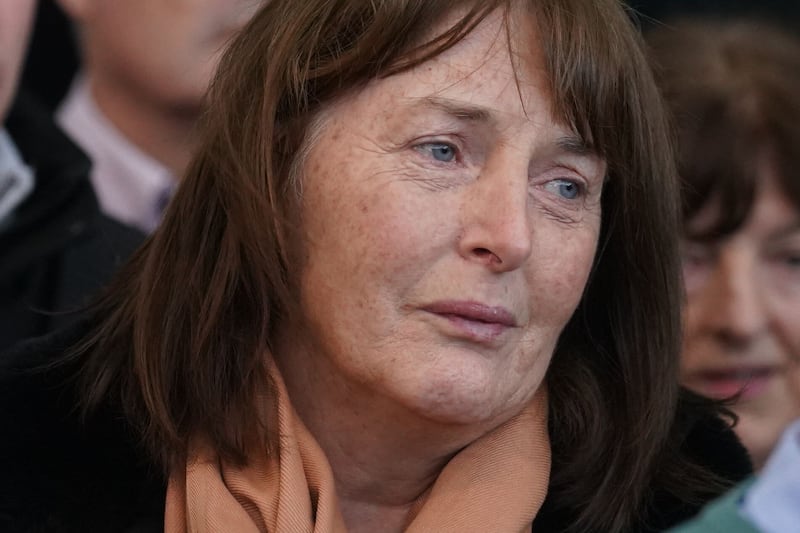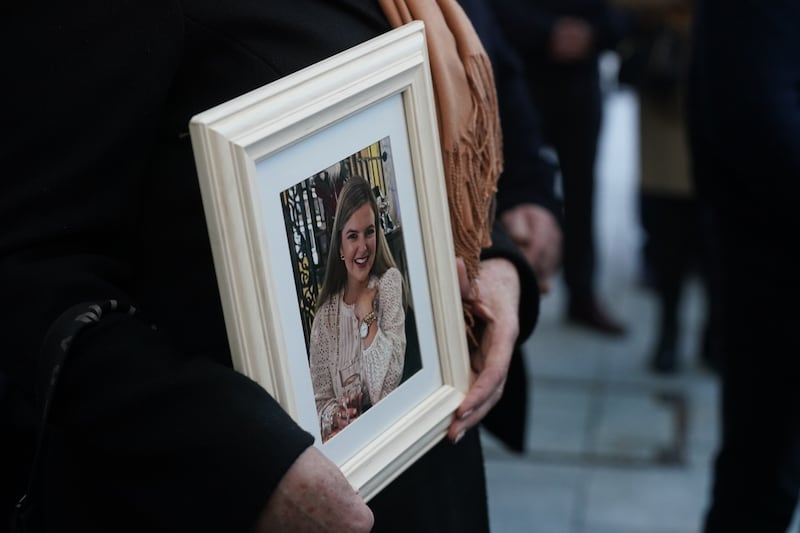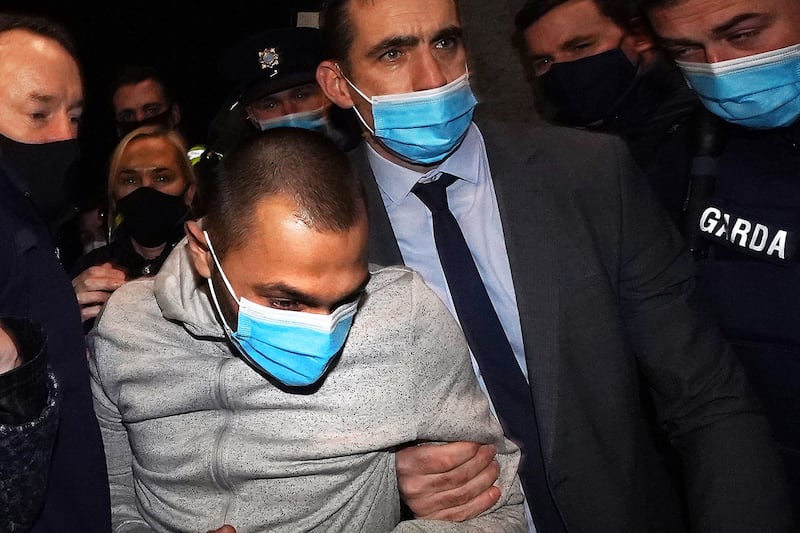The trial of the man accused of killing Ashling Murphy has heard that material recovered from a bicycle matches his DNA.
Ms Murphy, 23, was killed while exercising on a canal path in Tullamore, Co Offaly, at about 3.30pm on January 12 last year.
Jozef Puska, 33, of Lynally Grove in Mucklagh, Tullamore, has pleaded not guilty to the schoolteacher’s murder.
Appearing before the Central Criminal Court, fingerprint expert Dr Kim Connick, of Forensic Science Ireland, explained that she had been tasked with examining three items.
She said she examined a bike with a “dark grey frame” which had “bright green forks and handlebars”.
She said she inspected the bicycle visually but also used aluminium fingerprint powder, a process known as superglue fuming, and dyeing to search for marks.
“I developed one mark with the aluminium powder,” she added.
She said the finger mark was on the underside of the saddle and was consistent with someone placing their hand there to lift the bike.
The other two items were a navy padded jacket and pair of Rayban sunglasses with gold frames.
The jacket had been stained with a blood-like substance, she said.
Dr Connick said she examined it with high-intensity light sources and superglue fuming.
She said no fingerprint mark developed on the jacket.
Dr Connick said she used aluminium fingerprint powder and superglue fuming to inspect the sunglasses, which had a small amount of mud on the front lens.
She “developed an area of possible touch on the inside lens” but there were no identifiable ridge details that would be needed for identification.
The sunglasses were sent to a DNA team as they may have been able to recover DNA from the item.
Detective Sergeant Damien Carroll, from the Garda Technical Bureau, told the court he had more than 22 years of experience in identifying people through finger and hand prints.
He said no two people have the same fingerprints and that they are not the same even on different fingers of the same person.
Mr Carroll said he was provided with two sets of prints belonging to Mr Puska which had been taken by gardai.
Having examined the detail of the fingerprints and compared it with the print taken from the mountain bike, he said he was “in no doubt” that the print on the saddle matches Puska’s right ring finger.
The court also heard from recently retired forensic scientist John Hoade, from the Forensic Science Laboratory, who explained he had personally taken a DNA sample from the handlebars of the bike.
He said the sample was a full profile and it matched a sample taken from Puska.
He explained to the court that a “full profile” contains 32 elements.
The witness said that collected samples often do not have all 32 elements, but in this instance it was a full profile.
Mr Hoade compared the sample with DNA taken from a sample of Puska’s blood and from a swab of the accused.
He said: “All three profiles matched each other.”
Mr Hoade said the probability of the DNA on the bike belonging to Puska was “one billion” times more likely than someone else.
He said everybody’s actual DNA is “unique to them” but acknowledged there was a “theoretical possibility” of a matching DNA profile between two individuals.
Asked if he had ever found two matching profiles outside of identical twins, he replied: “Never.”









